Canberra Airport Runways: Difference between revisions
No edit summary |
|||
| Line 36: | Line 36: | ||
I do not recall ever being invited to a first or previous consultation as a GA operator out of YSCB. | I do not recall ever being invited to a first or previous consultation as a GA operator out of YSCB. | ||
Also note that the changes happening at Canberra Airport are being performed under the watch and approval of the Minister, under the oversight of the '''Department of Infrastructure, Transport, Regional Development, Communications and the Arts''' <ref>Department of Infrastructure, Transport, Regional Development, Communications and the Arts https://www.infrastructure.gov.au/</ref> <ref>Department of Infrastructure, GAAN Membership https://www.infrastructure.gov.au/sites/default/files/documents/gaan-membership-13january2022.docx</ref> (at the time of writing, and through various name changes), and CASA - over quite some years. | Also note that the changes happening at Canberra Airport are being performed under the watch and approval of the Minister, under the oversight of the '''Department of Infrastructure, Transport, Regional Development, Communications and the Arts''' <ref>Department of Infrastructure, Transport, Regional Development, Communications and the Arts https://www.infrastructure.gov.au/</ref> <ref>Department of Infrastructure General Aviation Advisory Network https://www.infrastructure.gov.au/infrastructure-transport-vehicles/aviation/general-aviation</ref><ref>Department of Infrastructure, GAAN Membership https://www.infrastructure.gov.au/sites/default/files/documents/gaan-membership-13january2022.docx</ref> (at the time of writing, and through various name changes), and CASA - over quite some years. | ||
=prevailing wind= | =prevailing wind= | ||
Revision as of 21:08, 5 November 2022
Overview
The Canberra Airport Group has announced that they are shortening runway 12 by 360 metres via a displaced threshold. Informal information is that it is because of a high-rise car parking station proposal.
A final-consultation meeting was held on Wednesday the 26 Oct 2022 to inform the General Aviation (GA) Permit Holders about the works.
An extract from the email notification is enclosed:
To all General Aviation Permit Holders at Canberra Airport Canberra Airport invites you to attend a final consultation meeting for the purposes of briefing you on the program and scope of works to permanently displace the Runway 12 threshold. Changed operational conditions will apply with the permanent displacement of the Runway 12 threshold and, once implemented, will be notified via a PERM NOTAM. Details of the meeting are: DATE: Wednesday, 26 October 2022 TIME: 6.00pm – 8.00pm VENUE: Alastair Swayn Theatre, 33-35 Brindabella Circuit, Brindabella Business Park (map attached) RSVP: Please RSVP to Susan Mulligan on s.mulligan@canberraairport.com.au by COB Friday, 21 October 2022. Light refreshments will be provided. We urge you to please come along to this final consultation meeting as it will provide important information for GA users of the aerodrome, and the review period of the Canberra Airport Master Plan has been changed from 5 years to now 8 years (that makes the next review in 2028). Kind regards. Susan Mulligan Executive Assistant - Director of Planning & Government Relations | Canberra Airport Level 4, 21 Terminal Avenue | Plaza Offices – West | Canberra Airport ACT 2609 T 02 6275 2294
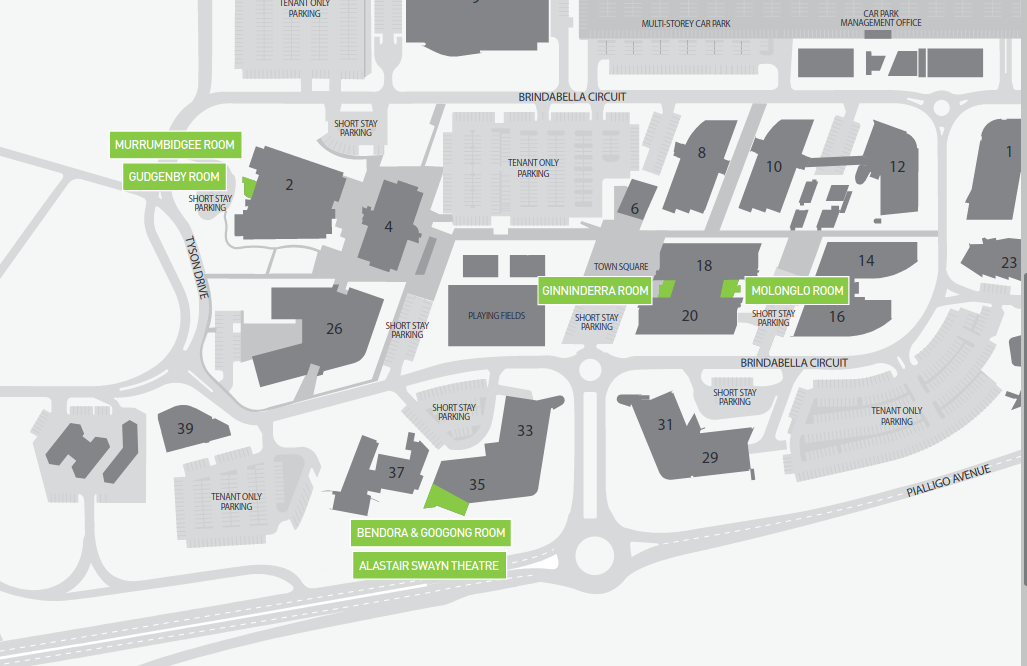
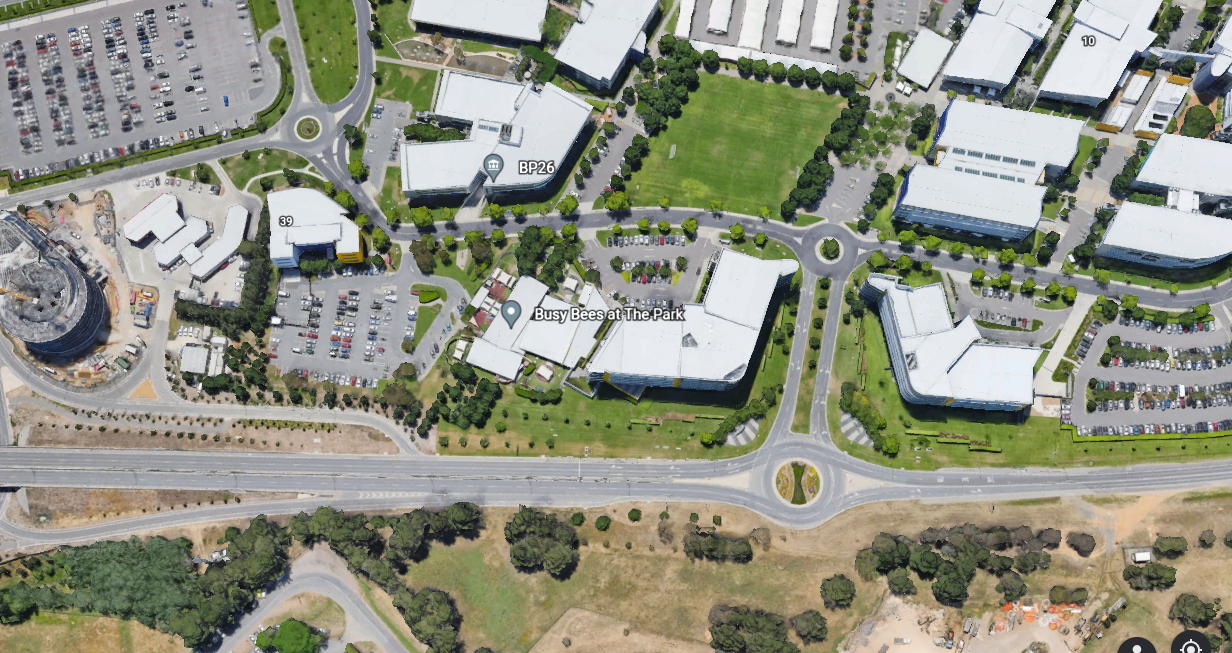
I do not recall ever being invited to a first or previous consultation as a GA operator out of YSCB.
Also note that the changes happening at Canberra Airport are being performed under the watch and approval of the Minister, under the oversight of the Department of Infrastructure, Transport, Regional Development, Communications and the Arts [1] [2][3] (at the time of writing, and through various name changes), and CASA - over quite some years.
prevailing wind
The prevailing wind[4] conditions at Canberra airport.
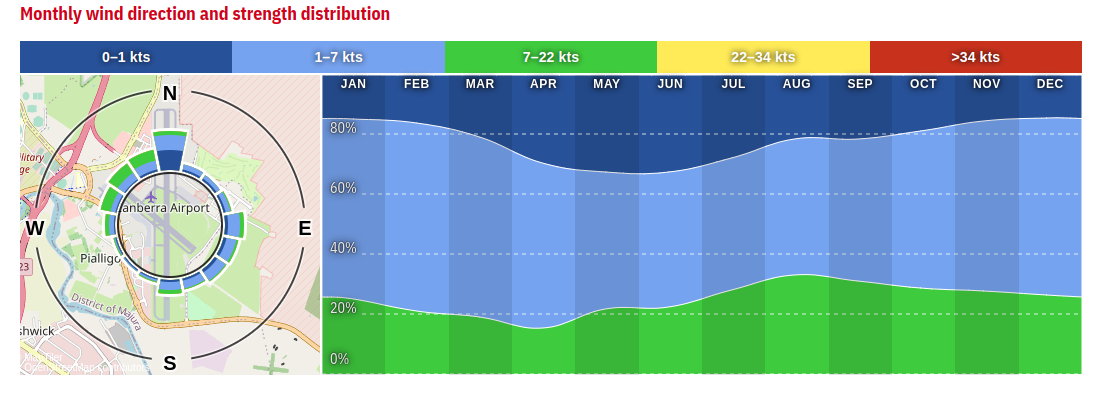
🚩 Note: the cross-runway 30 / 12 (oriented 300 / 120 degrees magnetic) faces into statistically significant prevailing winds, and that the indicated compass-rose references true north.
The main runway 35 / 17 is oriented 350 / 170 degrees magnetic.
aircraft movements
TBA: tracks for runway 12 and 30 will be sourced from some external archives and then be rendered in this section (time permitting).
See some recent flights from runway 12 / 30 (and this is just two local aircraft):
- https://uk.flightaware.com/live/flight/VHMIZ/history/20221019/0345Z/YSCB/YSCB
- https://uk.flightaware.com/live/flight/VHMIZ/history/20221019/2303Z/YSCB/YSCB
- https://uk.flightaware.com/live/flight/VHMIZ/history/20221018/2240Z/YSCB/YSCB
- https://uk.flightaware.com/live/flight/VHMIZ/history/20221018/0317Z/YSCB/YSCB
- https://uk.flightaware.com/live/flight/VHMIZ/history/20221016/2301Z/YSCB/YSCB
- https://uk.flightaware.com/live/flight/VHMIZ/history/20221016/0420Z/YSCB/YSCB
- https://uk.flightaware.com/live/flight/VHMUW/history/20221015/2100Z/YSCB/YSCB
- https://uk.flightaware.com/live/flight/VHMUW/history/20221009/0300Z/YSCB/YSCB
turbulence
🚩 Note: when the wind is strong and between 060 and 090 (due to the sea-breeze reaching Canberra) it can become difficult to land on runway 12 [5] because of the turbulence[6][7] and wake [8] caused by the new buildings [9] within the Majura business park. It is best to avoid runway 12 when there is a Northerly wind and most GA aircraft would switch to runway 35.
There is also turbulence caused by the high-rise cark-parking stations, the Qantas Hangar and the terminal buildings affecting runway 35 with North-westerly and Westerly winds. The Tower controller also cautions aircraft landing in those conditions, just like they warn military aircraft to check-wheels.
Both sets of turbulence were permanently mentioned in NOTAMs until moved as permanent inclusions in the ERSA. (I have landed at these runways before the current works and the turbulence was not present before these buildings went up.)

something that was discovered after the fact when it should have been known prior.
The buildings are too close to the movement areas.
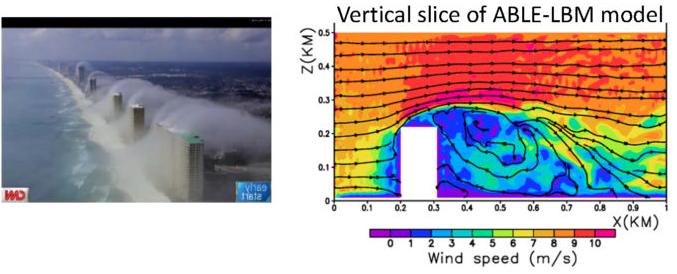
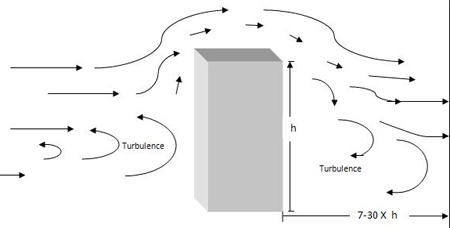
Buildings at Airports [12] should be more than 7.3 times their height away from movements areas and an airport RPZ [13]. The FAA has specific guidance for safe-guarding public airports [14], whereas Australia has the National Airports Safeguarding Framework [15] developed by the Department of Infrastructure and is somewhat dated, and doesn't protect all airports, and insufficiently covers building and development wake-turbulence. The safe-guarding framework did not protect any of the un-registered airports that have suffered from Wind Turbine Farms[16] either. Too bad about GA and our small regional airports. In my opinion, there is a gross lack of policy for the treatment of wake-turbulence by the Department, and by CASA.
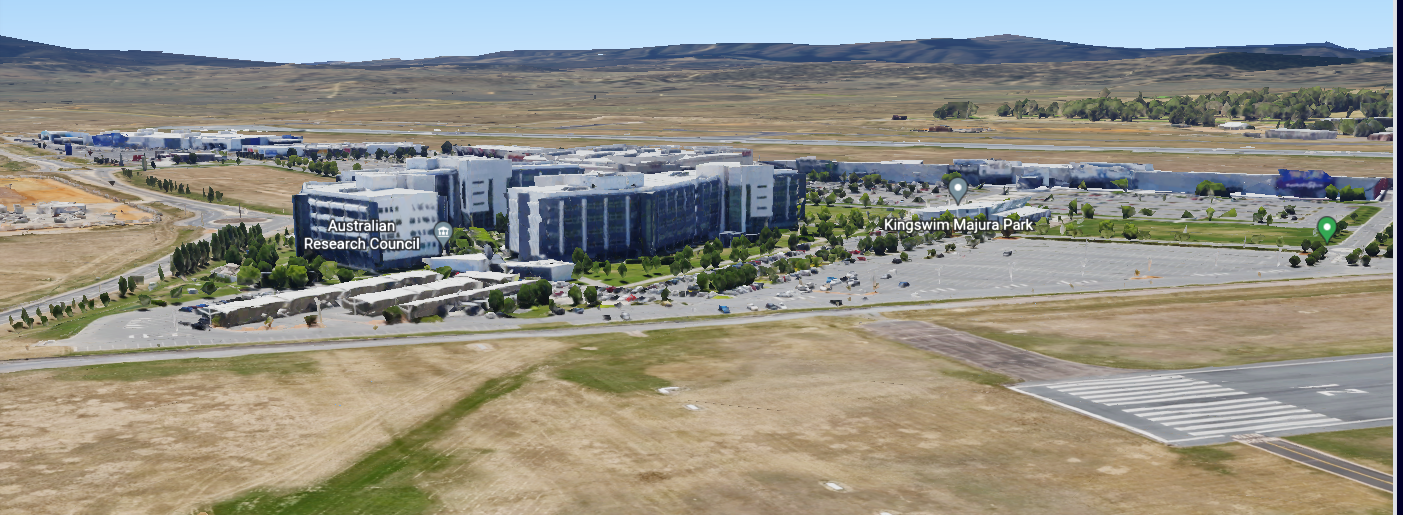
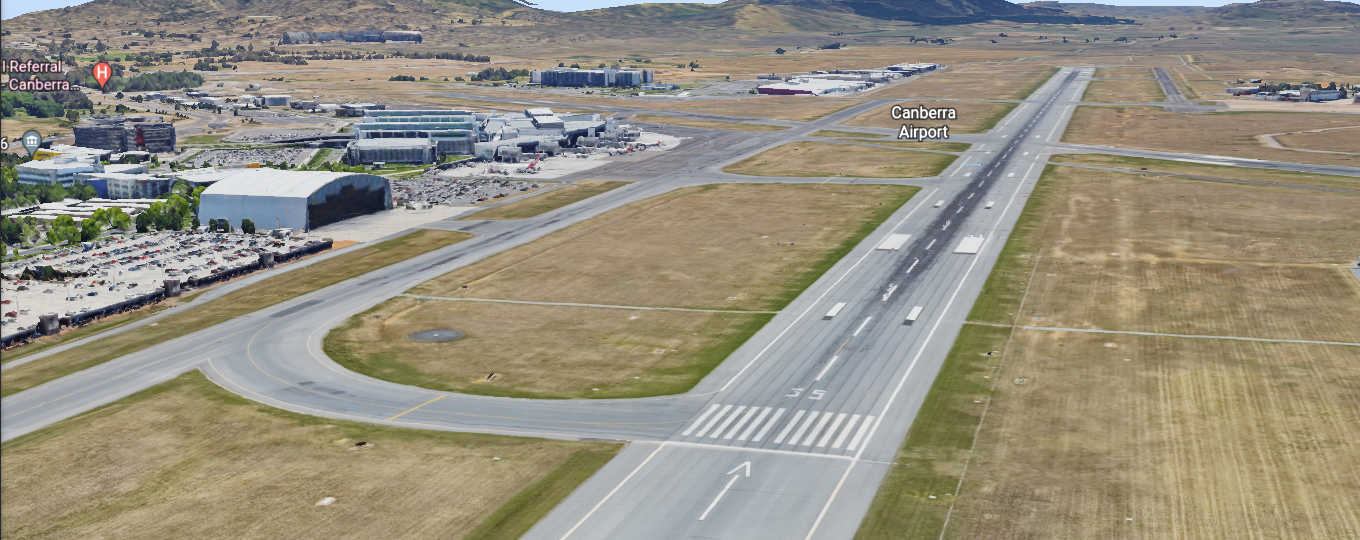
non aviation use
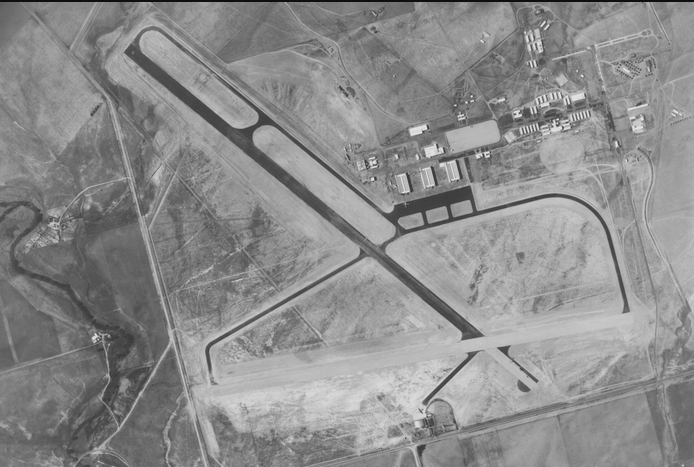
Source https://www.greatsoutherncards.com.au/images/canberra-airport-small.jpg
Note where the taxiways used to run, and the very small shed for the Domestic terminal [19]
See the original airport layout, all the clearways, the verges and aircraft parking areas. The founding fathers knew how to layout an airport, primarily for defence use. You can see by the remnants what happened to the original runway 12 / 30 taxiways. One has been replaced by a car-park for non-aviation use buildings, and the other has been ripped up with no access to the defence hard-stand.
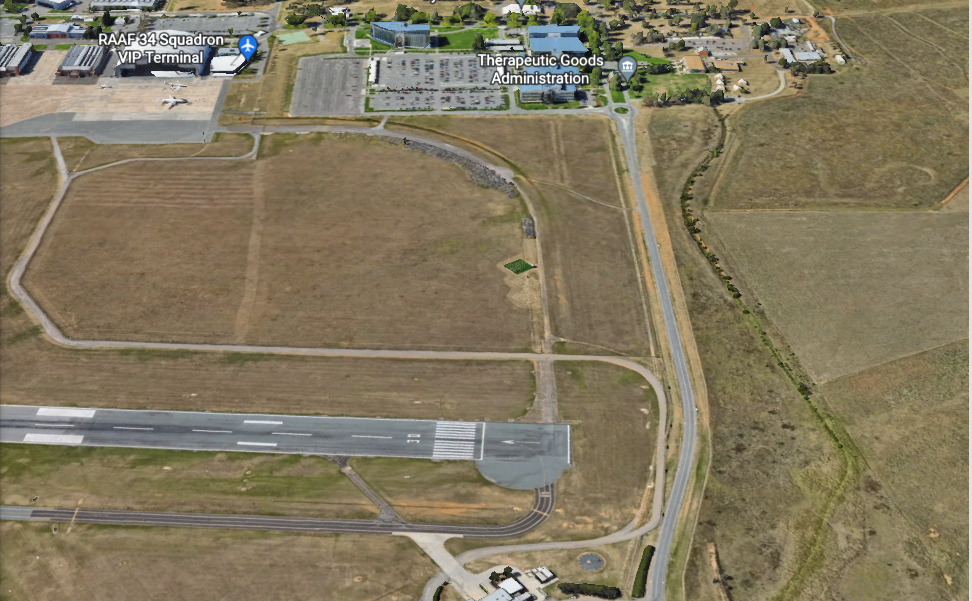
and what looks like an antenna farm, or maybe a weather station?[20]
Canberra airport Aviation Infrastructure is being squeezed by non-aviation use[21], and commercialisation rates have forced several once booming Flight Training Schools away from the field, as well as General Aviation Maintenance - though Qantas does have a maintenance hangar - the one near runway 35 between intersection Mike and November that causes turbulence.
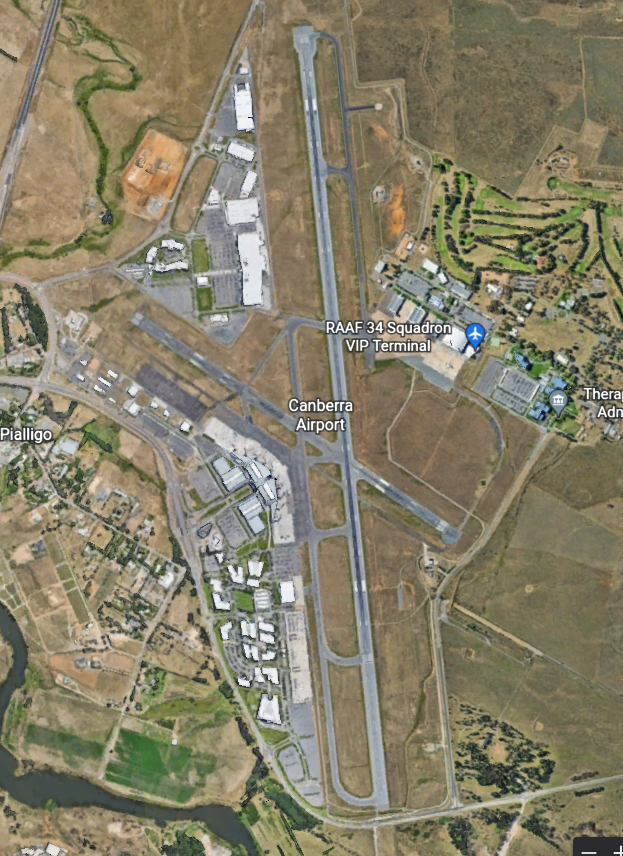
nor the new GA hangars where GA aircraft were once parked on the grass South of runway 12, nor the new business park high-rise building where the grass used to be between the western development and Majura Park complex [22]
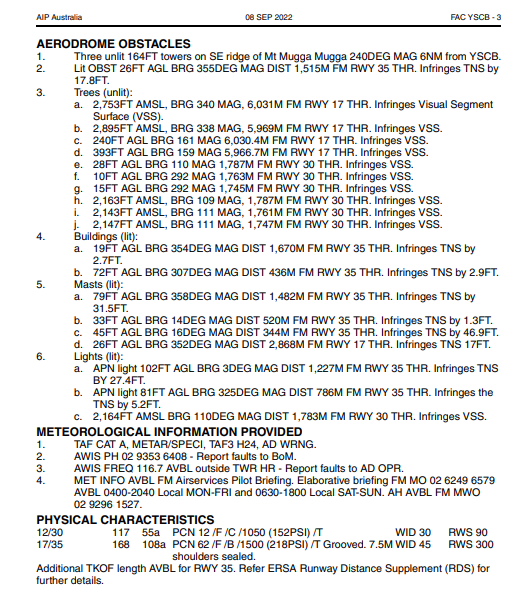
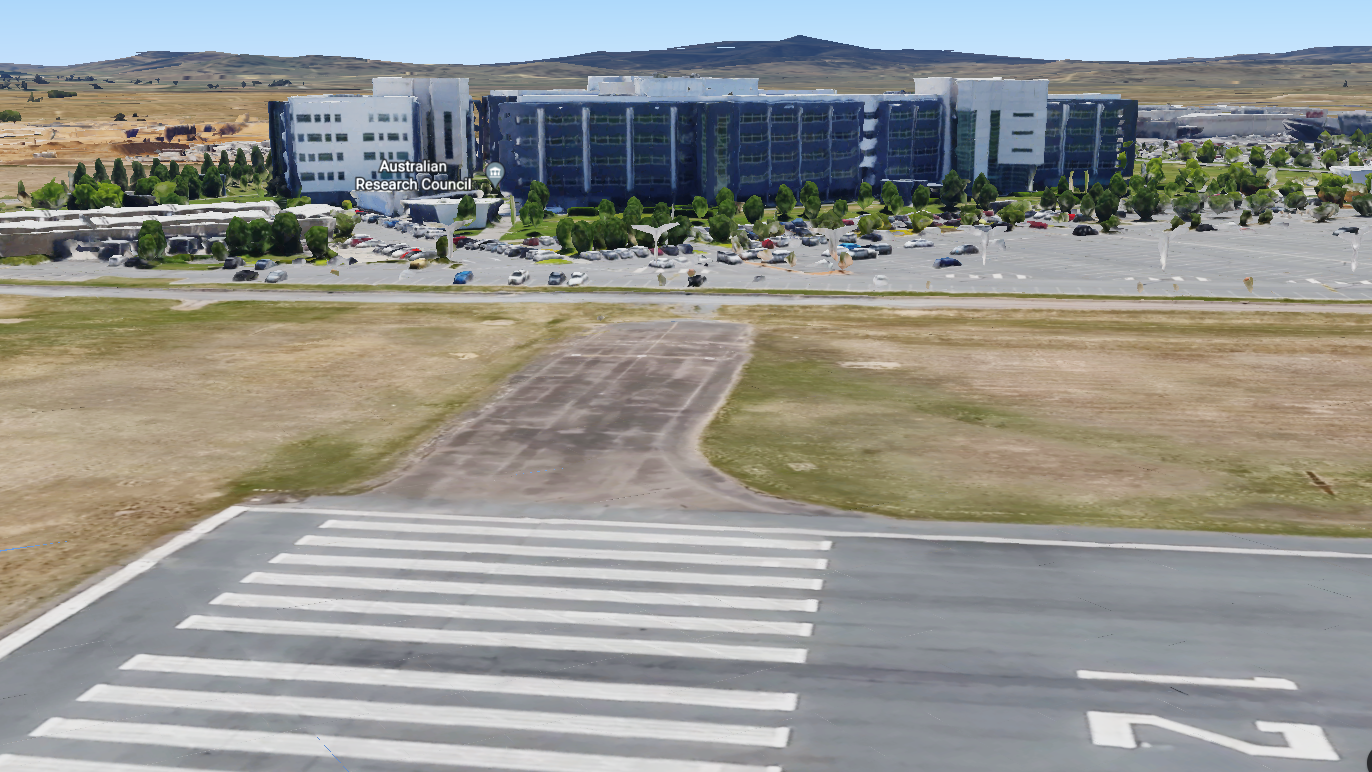
Building development has interfered with Aviation use, via obstruction, turbulence and resumption. Just North of runway 12, including the destruction of the taxiway, and resumption of land, we can see the encroachment affecting the verge, and turbulence affects, which resulted in the runway being technically narrowed and down-graded some years ago. The primary (white) windsock was also changed to a secondary (yellow) windsock and re-located onto the right-hand-side of threshold 12 where pilots do not normally look - this occurred after a pilot reported an upset due to turbulence.
At that time we were warned by CASA not to make too many turbulence complaints to the ATSB as they said they would be forced to consider closing runway 12. Hence you will not see too many ATSB reports on the matter.
Pilots also sit in the left hand seat and there is usually substantial metal in the way of the view to the right for that windsock which is very inconvenient!
Pressure and turbulence from the non-aviation use exhibited by the newer office-space development and car-park and fencing that is just to the north of the cross-runway where the Canberra Airport Group resumed the former taxiway and surrounding land.
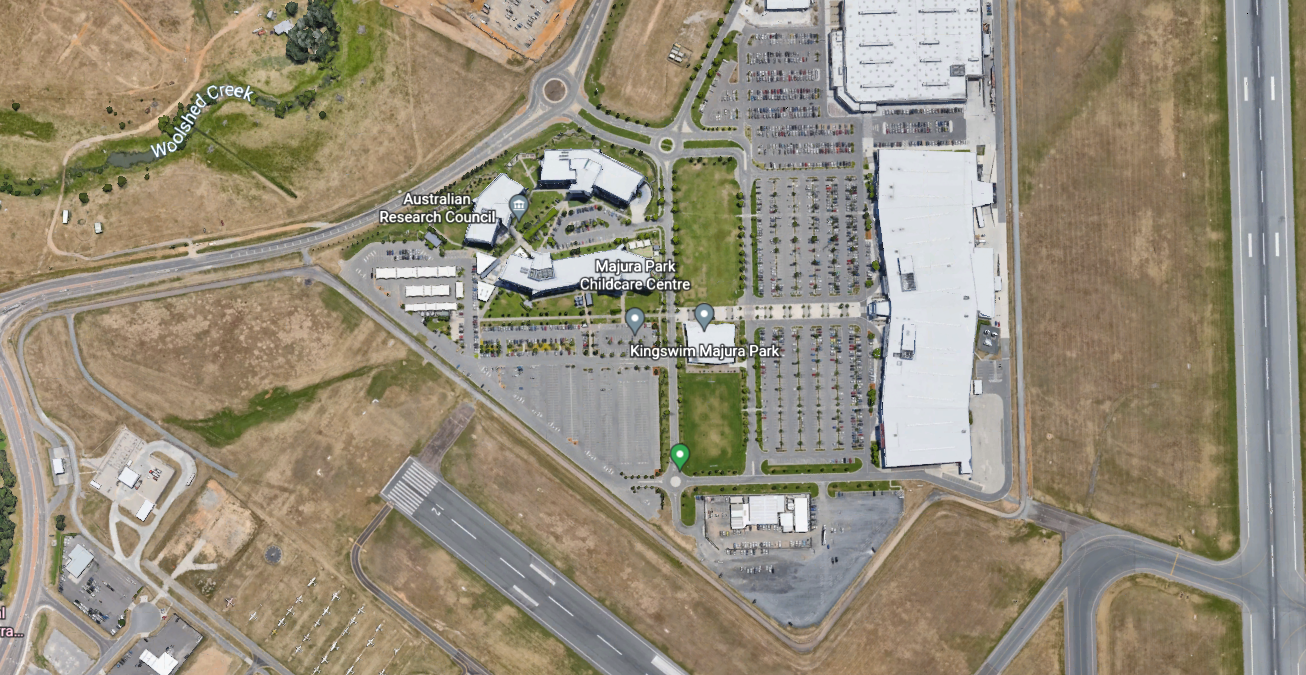
such as the new GA hangars and the loss of aircraft parking on the grass areas outside the verge, now completely filling the light-GA hardstand.Note that the section of grass in the middle of the image has been replaced with a new high-rise business complex,
and the old taxiway goes to the car-park.
You can also see large areas, and ex hangars that have had their air-side access cutoff in the North-eastern Fairbairn precinct, where now you can find ground vehicles and other non-aviation use, and in some cases an empty shed. I drove past one day and even saw a speed-boat parked in a hangar!
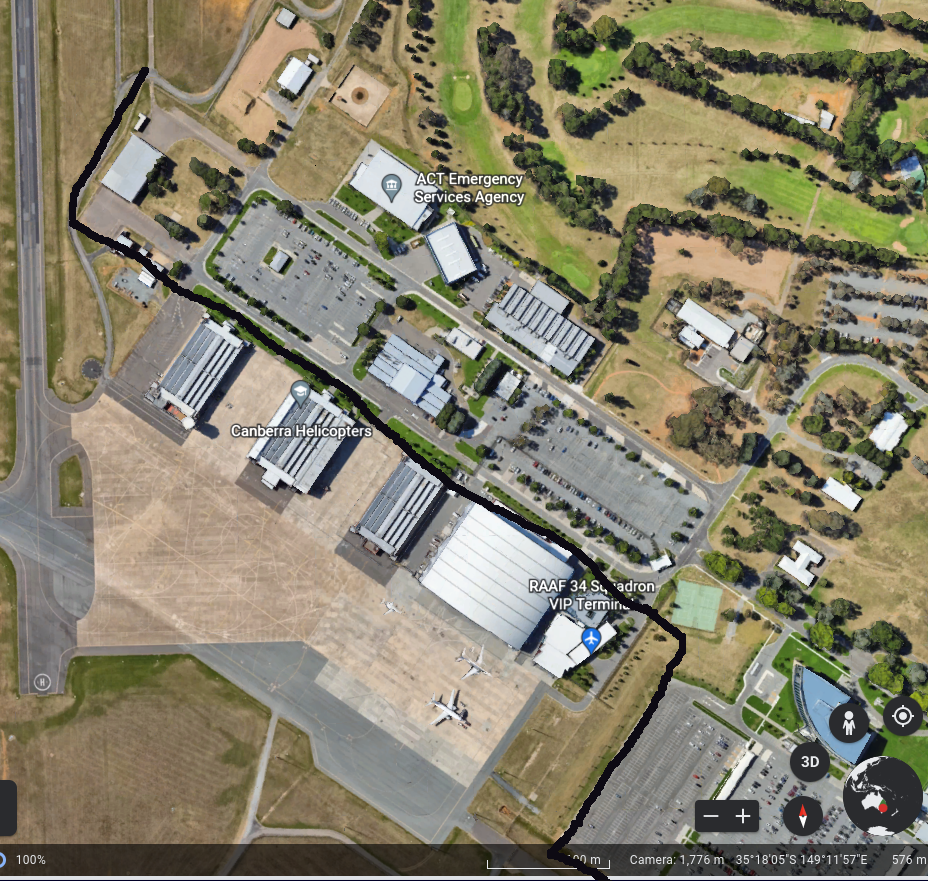
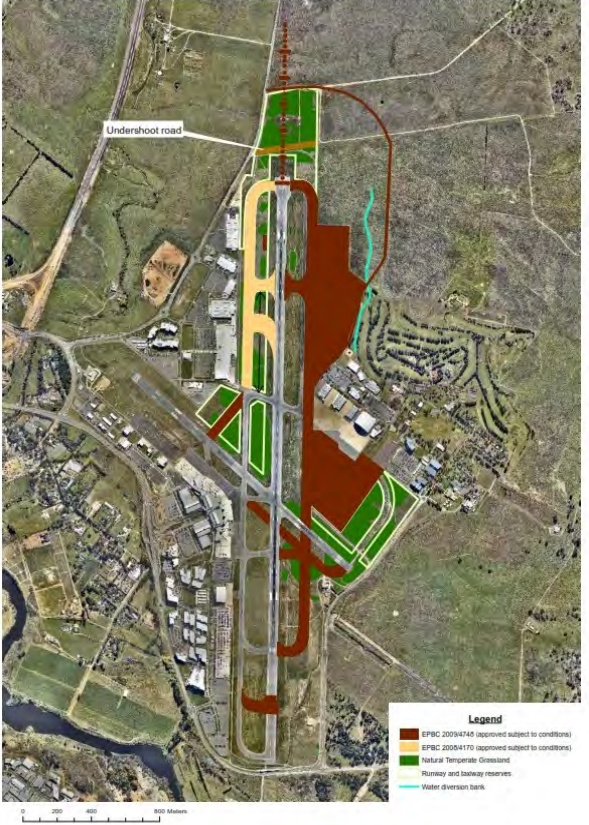
Presentation Notes
A substantive number of people attended the presentation which covered:
- that we are doing fly friendly and noise abatement to take aircraft higher over ADFA to permit ADFA to build, and the ACT to build-out the areas to the west and north-west of RWY 12 threshold.
- that the OLS needs to be moved to permit future building in those areas as we have discussed with ADFA and the NCA (ie. infill where there have already been a few crashes)
- what is it really about? It is about a new high-rise building planned to the south of the current complex and will be even closer to the RWY 12 threshold and verge.
- the building is going ahead because the Master Plan was approved in 2020 and that the building cost will be below the review trigger threshold.
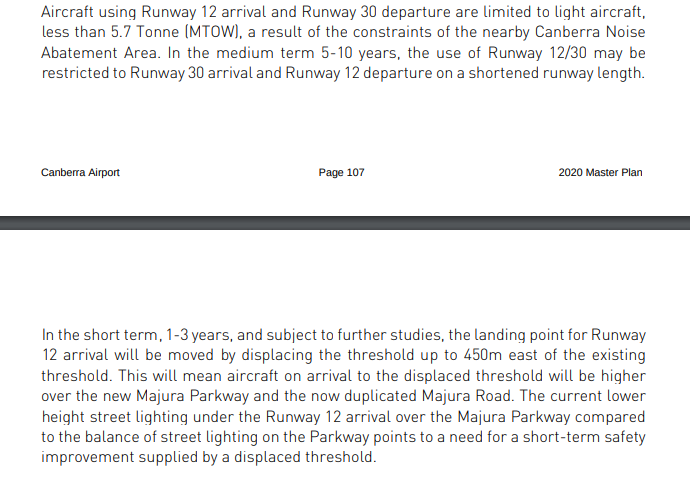
- the downgrade of RYW 12 was justified by grossly-understated aircraft movements of less than 1 aircraft per day on RWY 12 and 2 per day on RWY 30, claiming the source was Air Services!
- the works are starting with a NOTAM on Monday 7th of Nov 2022.
One of our GA pilots also requested that an RNAV RWY 17 approach be commissioned by the airport since RWY 12 threshold is being displaced. There are 3 x RNP RWY 17 (AR) (CASA Approval Required) approaches that GA cannot fly, and no RNP/RNAV Z RWY 17 approach that GA could fly in IMC. The old VOR RWY 17 approach MDA is 3350' and at a times not always clear of cloud. The newer RNP Z RWY 35 has an LNAV/VNAV MDA of 2440' and the ILS RWY 35 has an MDA of 2170'/1.2 or 2420'/2.2 for all categories.
my thoughts
- the building proposal is subject to wind turbulence modeling [9]
- that the RWY 12 threshold is being moved so that a proposed building may pass those wind-modeling tests. (I hope it will be more thay 7.3 times it’s height laterally away from the verge)
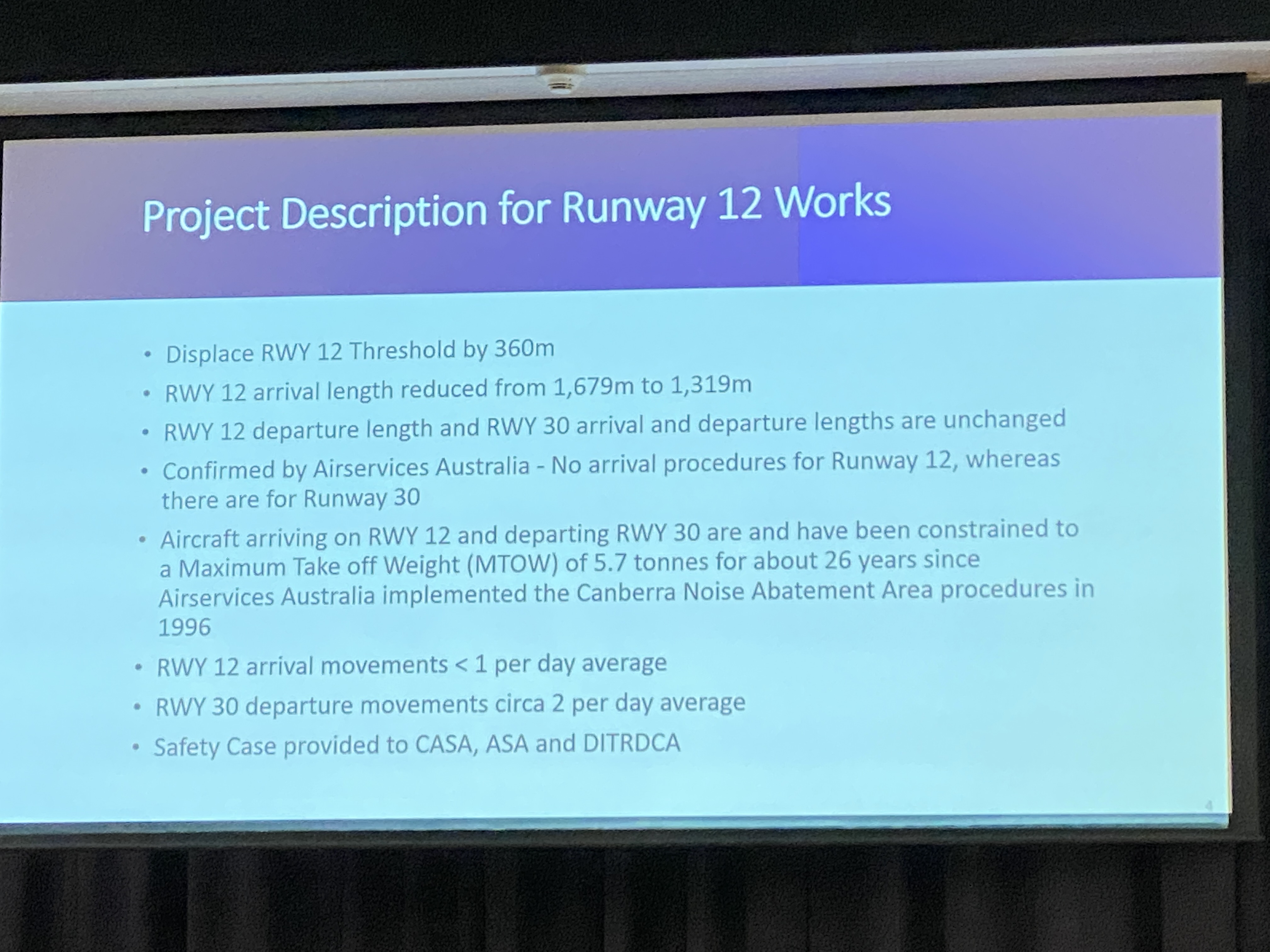
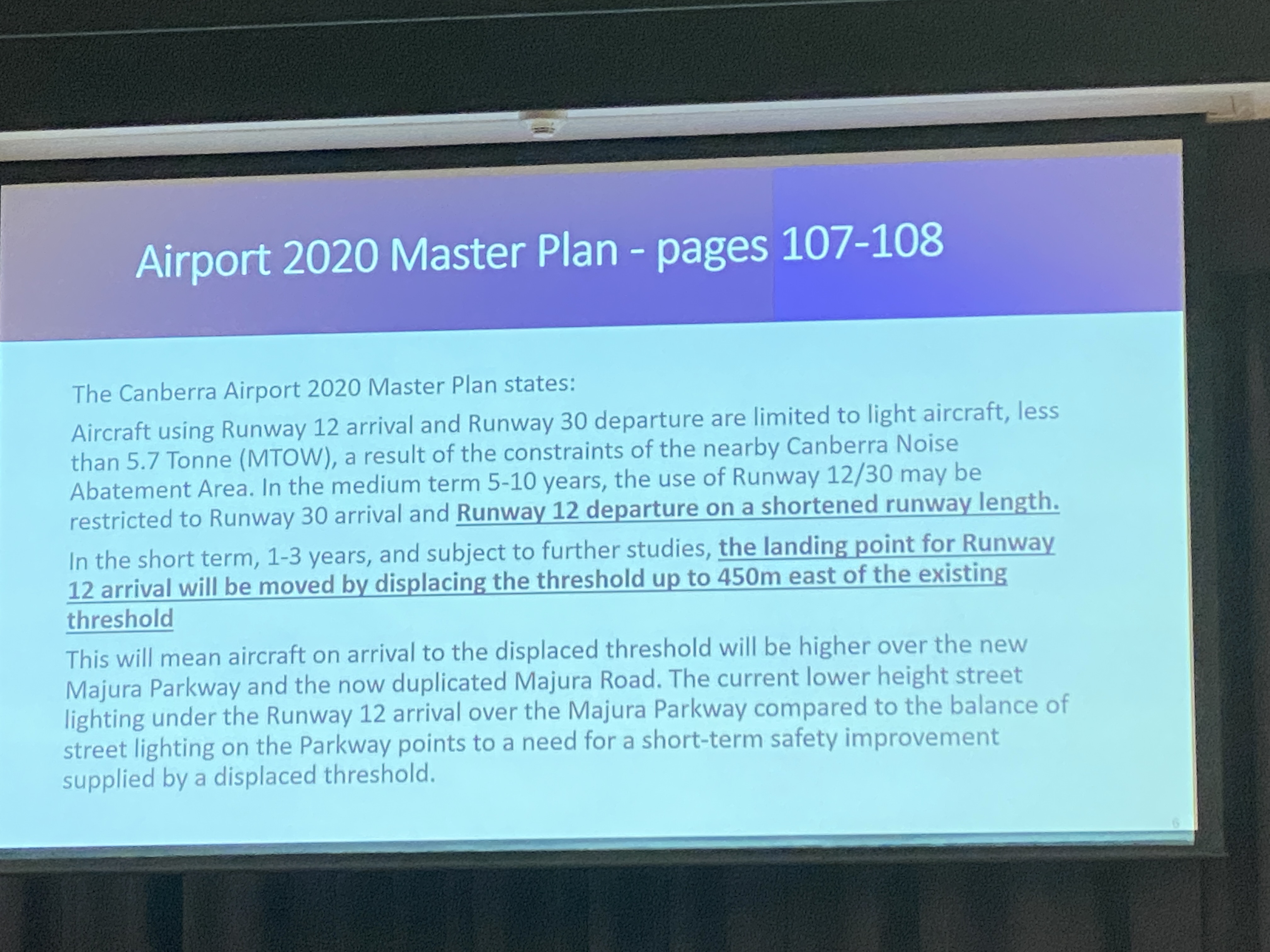
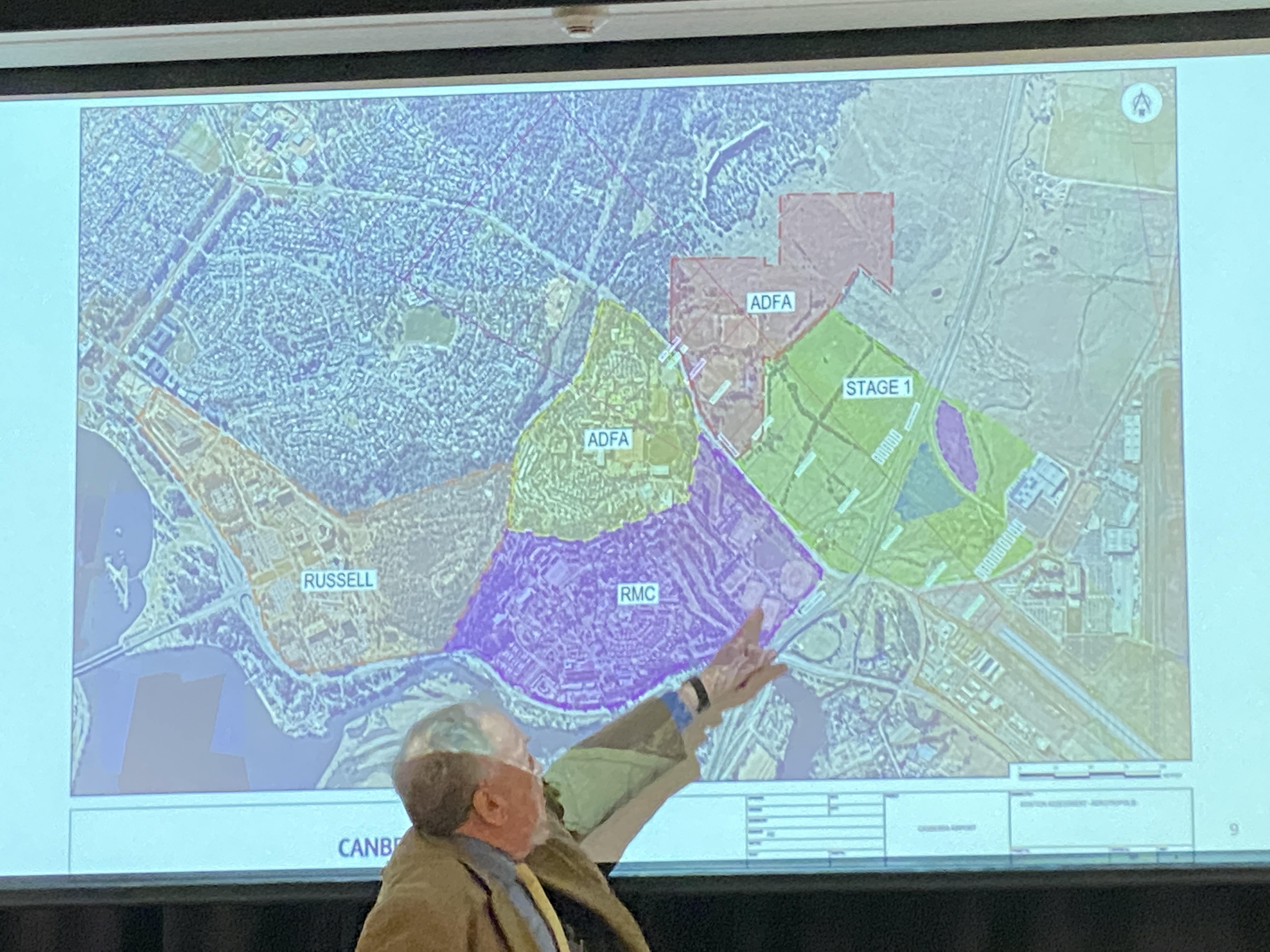
- the proposed building is for non-aviation use
- the indications were south of those buildings to the right near that triangular shaped/car-park in fig 7
- abeam the RWY 12 threshold as the wind blows
- more than likely to be covering the grass area in fig 7.
- shortening a runway so a proposed building may pass its wind turbulence modeling to keep us safe is a bizarre concept of safety to a pilot and does not pass my pub-test.
- there was no mention of what Stage 1 would be in fig 20!
Recall the old saying:
The three most useless things to a pilot are the altitude above you, runway behind you, and the fuel you had.
What the saying is really talking about, is give up your margin grudgingly, especially when you don't need to.
Being one who has suffered from an engine-out after takeoff from runway 12 and having sufficient runway ahead of me to land and not end up in a ball of fire, was invaluable to me, and I am alive today as a result. I am passionate about runway length, landing area, the verges, and the approaches, and departure overruns and clearways. These are our options when things go wrong - which they can easily do.
Approaches, and departures, landing area, runway length, clearway and verges are essential for safety https://vimeo.com/26640491 [27] (that is a unfortunate video that was used by the Australian Mooney Pilots Association Pilot Safety Program during their training sessions, and was on my mind while doing the engine checks after total-power failure on take-off from Canberra RWY 12 which I believe helped save my life - as well as the remaining length.)
summary
In the opinions of our pilots, displacing the RWY 12 threshold means:
- less-go-around room,
- less landing room,
- almost definite overshoot of the main runway intersection,
- consequential restriction on operations,
- restrictions on training,
- restrictions on circuits,
- a higher work-load for the tower operators, and
- restriction on aircraft type.
I also haven’t noticed any street lights being obstructive (also mentioned during the presentation) to the current OLS PANOPS of RWY 12 and have landed there at night many times.
Light aircraft below 5,700 kg are not subject to noise abatement either, because their noise levels are much lower.
The area 4 miles west of RWY 17 / 35, which includes the Majura Ainslie ridge, is within the circling area for Category A and B aircraft below 5,700 kg. That circling is for landing on any runway.
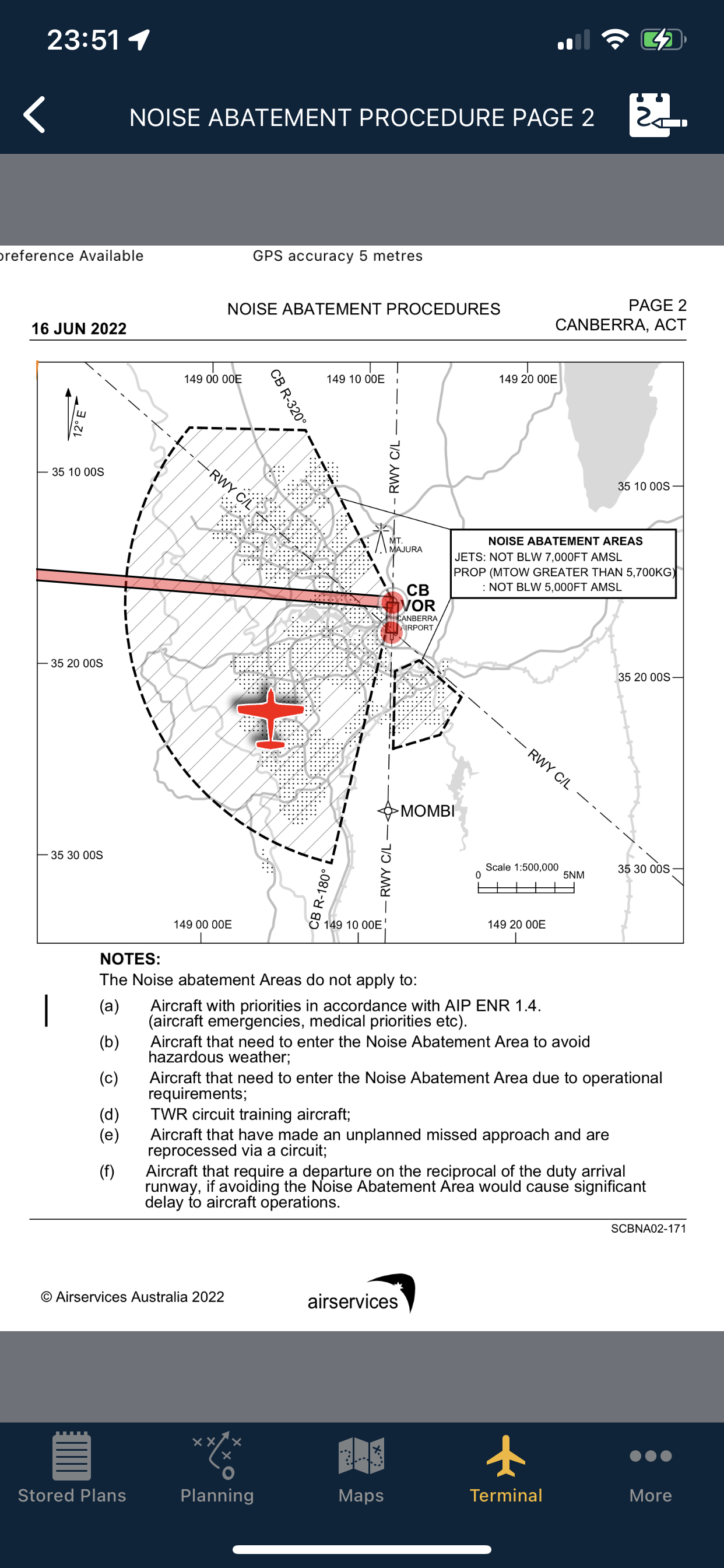
The IGDEL DME/GNSS arrival is referenced to the VOR and crosses south of Mt Ainslie and is an invaluable arrival for General Aviation aircraft inbound from the West, and many times has enabled me to become visual from IMC to either land on RWY 12, or join left downwind RWY 35. Its MDA FOR circling is 3350’ AMSL on Air Services charts, and 3250' AMSL on the Jeppesen charts I use in my aeroplane - which is better than flying the offset VOR RWY 17 approach due terrain clearance required from Mt Majura.
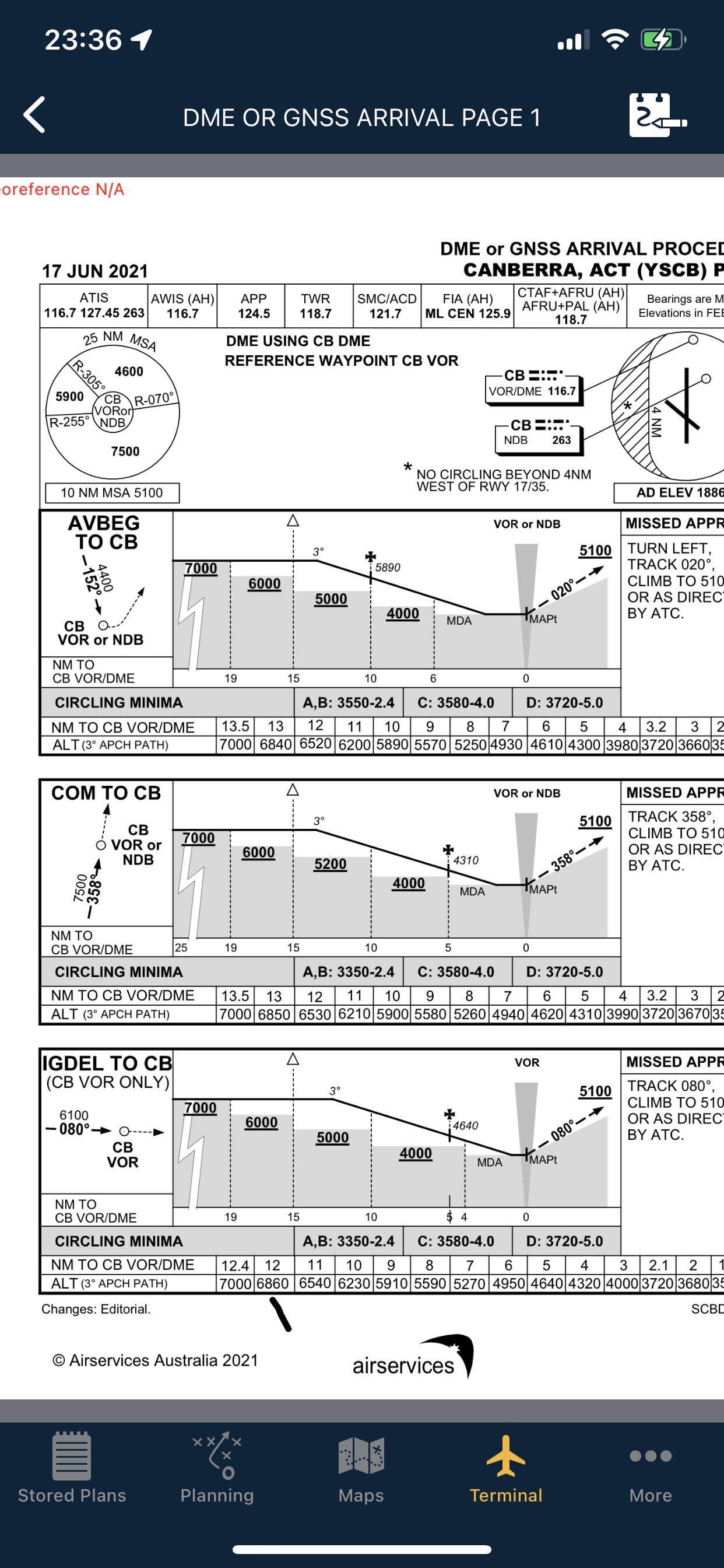
On the flip side Canberra Airport Group[28] are obviously into RPT Aviation and have converted Canberra Airport away from the tin-shed terminal days by paying for Aviation infrastructure via non-aviation uses, such as commercial buildings and car-parks and subsequent sub-leasing. But keep in mind that Aviation Infrastructure maintenance is what is required when taking over the lease of an airport.
Canberra Airport Group have a very nice and fresh presentation with their modern buildings, parking stations, gardens and business park areas, that are neat to work in and visit, and they are obviously proud - it is an achievement. In many cases they have sub-leased premises back to the Federal Government.
Notes
See related news:
- 2022-11-03 2022-11-04 Clinton McKenzie and Ben Morgan AOPA - Canberra Airport, Department of Infrastructure, ASIC and CASA Avmed [29]
- 2022-11-02: Canberra Airport RWY 12 letters from Federal department [30]
- 2022-10-31: Canberra Airport RWY 12 update [31]
- 2022-10-06: Australian Flying, Ben Mogan on MDP threshold [32]
- 2022-12-04: Benjamin Morgan CEO AOPA [33]
- 2022-12-04: Ben Morgan AOPA on YSCB RWY 12 (as above) https://www.youtube.com/watch?v=dgzIzzKgJS0 [34]
- 2022-12-04 regional airport notices (as above) [35]
- 2022-04-28: Airport Privatisation; Ben Morgan and Senator Malcom Roberts [36]
🚩 Please note: that all the Google overhead images are old, quite old.
Since Canberra Airport development is so prolific the overheads are missing some of the substantive changes, such as the recently (different) building in Majura Park, and also the extension of Taxiway Bravo enabling RPT to get to the end of RWY 17 and off RWY 35 by only crossing RWY 12 / 30 lessening the load for ATC and enhancing safety as a result, and two new GA hangars built on the former grass area near the RWY 12 secondary wind-sock.
Canberra Airport Group has also upgraded the ILS to CAT III and extended runway 35 and installed modernised LED lighting systems that appear brighter in low visibility conditions, and stop bars that are brighter than the RWY 30 PAPI lighting system.
references
- ↑ Department of Infrastructure, Transport, Regional Development, Communications and the Arts https://www.infrastructure.gov.au/
- ↑ Department of Infrastructure General Aviation Advisory Network https://www.infrastructure.gov.au/infrastructure-transport-vehicles/aviation/general-aviation
- ↑ Department of Infrastructure, GAAN Membership https://www.infrastructure.gov.au/sites/default/files/documents/gaan-membership-13january2022.docx
- ↑ Windfinder prevailing winds YSCB https://www.windfinder.com/windstatistics/canberra_airport
- ↑ PPrune 2006 https://www.pprune.org/australia-new-zealand-pacific/print-207654-building-more-turbulence-canberra.html
- ↑ pprune report runway 12 Weston UK https://www.pprune.org/rotorheads/447761-turbulence-buildings.html
- ↑ Hong Kong LIDAR study of turbulence https://www.researchgate.net/publication/342583633_Statistical_analysis_of_building-induced_turbulence_at_an_airport
- ↑ Tall Buildings http://stephanesanchi.ch/index.php/applications/civil-engineering/tall-buildings
- ↑ 9.0 9.1 Wind Modelling building north of Runway 12 YSCB https://www.atsb.gov.au/publications/investigation_reports/2010/aair/ao-2010-008/si-03/
- ↑ Modeling turbulence https://apgnews.com/wp-content/uploads/2018/08/Modeling-Turbulence-1.jpg
- ↑ Recirculation https://www.eso.org/gen-fac/pubs/astclim/paranal/seeing/recirculation.jpg
- ↑ FAA airport design standards https://www.faa.gov/airports/engineering/design_standards
- ↑ RPZ guidance https://www.faa.gov/airports/planning_capacity/media/interimLandUseRPZGuidance.pdf
- ↑ FAA Part 77 - public airports https://www.ecfr.gov/current/title-14/chapter-I/subchapter-E/part-77
- ↑ Australian National Airports Safeguarding Framework https://www.infrastructure.gov.au/infrastructure-transport-vehicles/aviation/aviation-safety/aviation-environmental-issues/national-airports-safeguarding-framework
- ↑ Wind Turbines Wind_Turbines Wind Turbines
- ↑ Google earth runway 12 approach turbulence generators https://earth.google.com/web/search/Canberra+airport/@-35.30025305,149.18448957,563.04949221a,222.9565462d,35y,59.97676401h,75.60198605t,0r/data=CigiJgokCa-go-gPbT5AESez_ee-lkPAGUrxg1vijVVAIf0biOaXmEPA
- ↑ Google Earth Runway 35 turbulence generators https://earth.google.com/web/search/Canberra+airport/@-35.31491827,149.1942187,569.68338189a,325.59541599d,35y,-17.03627457h,73.18205207t,0r/data=CigiJgokCa-go-gPbT5AESez_ee-lkPAGUrxg1vijVVAIf0biOaXmEPA
- ↑ Early aerial photo YSCB historical aerial photos of https://www.greatsoutherncards.com.au/images/canberra-airport-small.jpg
- ↑ Google Earth - runway 30 taxi-way https://earth.google.com/web/@-35.30951,149.19890831,574.6562417a,1021.24062858d,35y,36.07476229h,52.59906614t,0r
- ↑ PPrune 2001 https://www.pprune.org/australia-new-zealand-pacific/207654-building-more-turbulence-canberra.html
- ↑ Google Earth YSCB https://earth.google.com/web/search/Canberra+airport/@-35.30630593,149.19037475,566.47686095a,6233.78333905d,35y,5.81305232h,0t,0r/data=CigiJgokCa-go-gPbT5AESez_ee-lkPAGUrxg1vijVVAIf0biOaXmEPA
- ↑ Google YSCB Runway 12 business park https://earth.google.com/web/search/Canberra+airport/@-35.3005505,149.18566594,563.4213521a,103.99582552d,35y,31.15011634h,75.89320324t,0r/data=CigiJgokCa-go-gPbT5AESez_ee-lkPAGUrxg1vijVVAIf0biOaXmEPA
- ↑ Google earth YSCB West https://earth.google.com/web/search/Canberra+airport/@-35.3005885,149.18830711,566.11883422a,1413.21953998d,35y,1.56442745h,0t,0r/data=CigiJgokCa-go-gPbT5AESez_ee-lkPAGUrxg1vijVVAIf0biOaXmEPA
- ↑ Google Earth YSCB NE https://earth.google.com/web/search/Canberra+airport/@-35.3022911,149.19916442,582.6691553a,961.72732129d,35y,1.56442745h,0t,0r/data=CigiJgokCa-go-gPbT5AESez_ee-lkPAGUrxg1vijVVAIf0biOaXmEPA
- ↑ Master Plan 2020 https://www.canberraairport.com.au/2020-master-plan/
- ↑ the turn-back https://vimeo.com/26640491
- ↑ CAG Executuve Chairman Terry Snow https://www.forbes.com/profile/terry-snow/?sh=4b9dca3426ab
- ↑ 2022-11-04 Clinton McKenzie and Ben Morgan AOPA - Canberra Airport, Department of Infrastructure, ASIC and CASA Avmed https://www.facebook.com/AOPAaustralia/videos/631074218803507/
- ↑ 2022-11-02: Ben Morgan on Canberra Airport RWY 12 letters from Federal department https://fb.watch/gxybHRutGc/
- ↑ 2022-10-31: Ben Morgan on Canberra Airport RWY 12 update https://fb.watch/gu_FxbZeU1/
- ↑ 2022-10-06: Ben Morgan on MDP review threshold for Aviation Developments https://www.australianflying.com.au/latest/master-plan-threshold-to-stay-at-25-million
- ↑ Canberra Airport, Benjamin Morgan CEO AOPA https://www.facebook.com/groups/398937327230803/permalink/1566505363807321/
- ↑ Ben Morgan AOPA YSCB RWY 12 https://www.youtube.com/watch?v=dgzIzzKgJS0
- ↑ Canberra Airport: Regional Airport Users Action Group https://www.facebook.com/groups/398937327230803
- ↑ 2022-04-28: Airport Privatisation; Ben Morgan and Senator Malcom Roberts on Airport Privatisation
